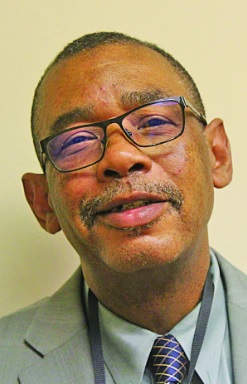By Hollis Wormsby, Jr.

As we talk about ways to break the cycle of poverty in our community I think there are four steps we can take with our school system that would make a tremendous difference. I would reinforce the role of truant officers and use them to both insure that kids are in school and to hold parents accountable. I would start teaching Civics in pre-K and continue it through high school graduation. I would bring back an emphasis on teaching Home Economics. And maybe the most important thing I would do is to place a much greater emphasis on making vocational education available for those who are not on the college track.
When I was a child truant officers had a place in the community. Of course families were more stable at that time so you had less children skipping school and the community was such that it was hard to hide during school hours without someone telling someone in authority, but the bottom line is we used to put more effort into making sure kids were in school when they were supposed to be. I think the investment in truant officers as a resource and the establishment of procedures and consequences for tracking absence and holding students and guardians accountable would be a huge first step in reducing youth violence in our community.
We used to have Civics classes in school where they taught about citizenship and personal responsibility. I think in this area where too many of our young people are learning their values from rap videos and drug dealers, that it would be a crucial tool in the battle to take back our youth if we would invest the resources in teaching civic classes that teach the values that too many youth are not learning at home and that try to deglamorize the life on the streets attitude being force fed to them through the music and video games they obsess over.
They used to teach Home Economics in school. I can remember when my sister learned how to make her own dresses in Home Economics classes.
They also taught how to develop a grocery list, how to manage a home budget, how to cook and other life skills that so many of our young people are not being taught today. We have so many young people who were raised in homes that did not teach these skills and they do not magically appear just because you have a child. If we could teach our low-income families how to shop and budget better, we could improve the nutritional health of our poor children substantially.
Does anyone here remember the way Vocational Education used to work? Where I went to school in South Carolina they offered Auto Repair, Carpentry and Basic Plumbing classes. I remember that the kids in the Auto Repair class, which we just called Shop, they would fix cars for people in the community as part of their learning experience. And the guy that taught Shop would also help the guys in the class to fix up their own cars, so Shop class was very popular. In addition to being popular these classes were also practical. Many students that I went to high school with got summer jobs based on skills they learned in Vocational classes, and others would go to apprentice with businesses in the community after they graduated. Many of these students would probably not have been successful at a four-year college, but because of Vocational Education they had the work skills needed to be employed even before they graduated.
I live in the Bush Hills community, and have done so for close to 28 years. For the last 10 years or so when you see repair people coming into our community they are almost never black. Need a roof, it will probably be a Mexican crew. Need plumbing work, could well wind up with a good old boy from Gardendale. What you don’t see is the young men in the community doing any of this work. We must improve the skill level of our low-income community and I believe that emphasizing Vocational Education in our school system would be a very good step.
There is no single solution to reducing gun violence in our community, but I think a focus on making sure we support our young people while they are in the educational system is a significant part of the solution. Truth is we have too many 16-20-year-olds roaming through our neighborhoods with no work skills. The street life is the only life they know or understand. If you put a factory with ten thousand jobs in some of these neighborhoods based on the lack of skills it would make little difference for those that live there. The first step in reducing the violence, in creating a better quality of life in our community, is to find ways to better educate our children and to more effectively intervene with children who are not embracing the value of the education that is freely available to them.
Or at least that’s the way I see it.
Hollis Wormsby has served as a featured columnist for the Birmingham Times for more than 27 years. He is the former host of Talkback on 98.7 KISS FM and of Real Talk on WAGG AM. If you would like to comment on this column you can go to Facebook.com/holliswormsby or email him at hjwormsby@aol.com.



